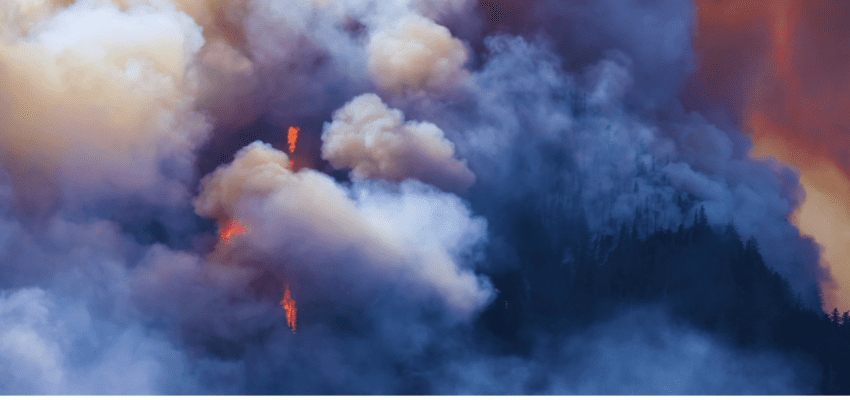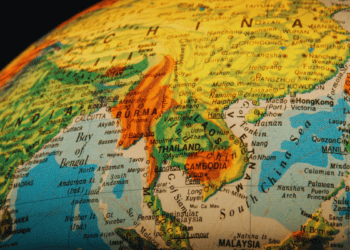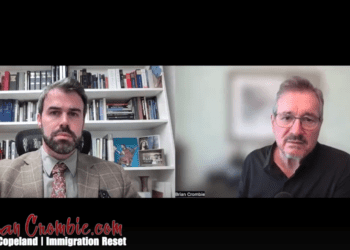This article originally appeared in the Financial Post.
By Jerome Gessaroli, April 19, 2024
Recent wildfires and flooding in British Columbia highlight the need for swift recovery, repair and adaptation to avert future losses. Today’s governments have the regulatory authority and financial resources to help the farmers, businesses and property-owners with recovery. But despite generous expressions of support and empathy and repeated promises of funding, slow government responses to such disasters expose the public to further losses from future events.
Things weren’t always this way. The Great Vancouver Fire of 1886 and the devastating fire in Lytton, B.C., in 2021 provide instructive examples of communities responding to catastrophes and rebuilding. In each case, fire’s speed and intensity laid waste to a community. But the two recoveries differed markedly and in ways that shed light on the roles of individual initiative and government intervention in getting economic recovery done.
In the summer of 1886, Vancouver, then a city of around 3,000, lost hundreds of buildings in a devastating fire. Instead of waiting for external aid, however, the community immediately rallied to rebuild. Volunteers, including the Squamish First Nation and local communities, mobilized rescue efforts, while donations of food, clothing, and supplies poured in from neighbouring towns. Although Vancouver’s mayor appealed for federal aid, it took three telegrams and 11 days before Ottawa responded with a modest contribution of $5,000. Meanwhile, a relief fund supported by local communities collected thousands of dollars within days.
Vancouver residents took matters into their own hands, swiftly starting the re-build. Contracts for reconstruction were awarded promptly. The local mill provided free lumber for anyone rebuilding. The resilience of the pioneers and businessmen and their sense of collective purpose drove Vancouver’s rapid recovery. The Vancouver Daily resumed publishing just three days after the fire, expressing optimism for the city’s restoration despite individual hardships.
In our own era, the town of Lytton suffered similar devastation, losing 90 per cent of its buildings to conflagration in June 2021. The provincial government was quick to offer support to the town’s population of 250, raising hopes for government assistance. Premier John Horgan pledged help for Lytton’s reconstruction, promising it would be a “case study” on community rebuilding — which it has been, though not in the sense Horgan intended.
As months have turned into years, redemption of the pledges made to Lytton has remained elusive. Two years after the fire, rebuilding had not started — indeed, not a single building permit had been issued. It was not until the end of 2023 that the first home re-builds began. Construction of a new municipal building still hasn’t started, and it is not expected to be ready until late 2025, more than four years after the fire. The blame certainly does not lie with the residents of Lytton — it is our growing dependence on government in all forms that leads to such outcomes.
Yes, there were many fewer regulations for re-builders to worry about in 1886 and key infrastructure, such as sewer, water, and electricity, had not yet been established. Even so, it is unacceptable that Lytton, could not issue a single building permit until two years after the fire. One former Lytton resident received a $22,000 quote for provincially mandated archaeological services — just so she could dig a water and sewer line trench for her house.
A “state of local emergency order” preventing property-owners from accessing their land was renewed 100 times over two years, effectively stalling re-building. Government officials have insisted on “world-class” environmental standards, which they could then showcase — even though most Lytton residents simply wanted a livable area in which to rebuild their homes and lives.
The stories of Vancouver after 1886 and Lytton since 2021 underscore a fundamental truth: governments play a vital role in disaster response, but they cannot and should not replace the resourcefulness of individuals and communities. Driven by its residents and local businesses, 19th-century Vancouver responded swiftly to the Great Fire. In contrast, 21st-century Lytton’s most daunting challenges have been bureaucratic delay and regulatory burden.
This tale of two Vancouver towns teaches that governments must recognize and support the capacity of individuals and communities to lead their own recovery efforts, while providing resources and removing bureaucratic obstacles. Empowering individuals and communities to take ownership of their destinies is essential for building resilience against natural disasters.
Jerome Gessaroli, a senior fellow at the Macdonald-Laurier Institute, leads the Sound Economic Policy Project at the British Columbia Institute of Technology.






